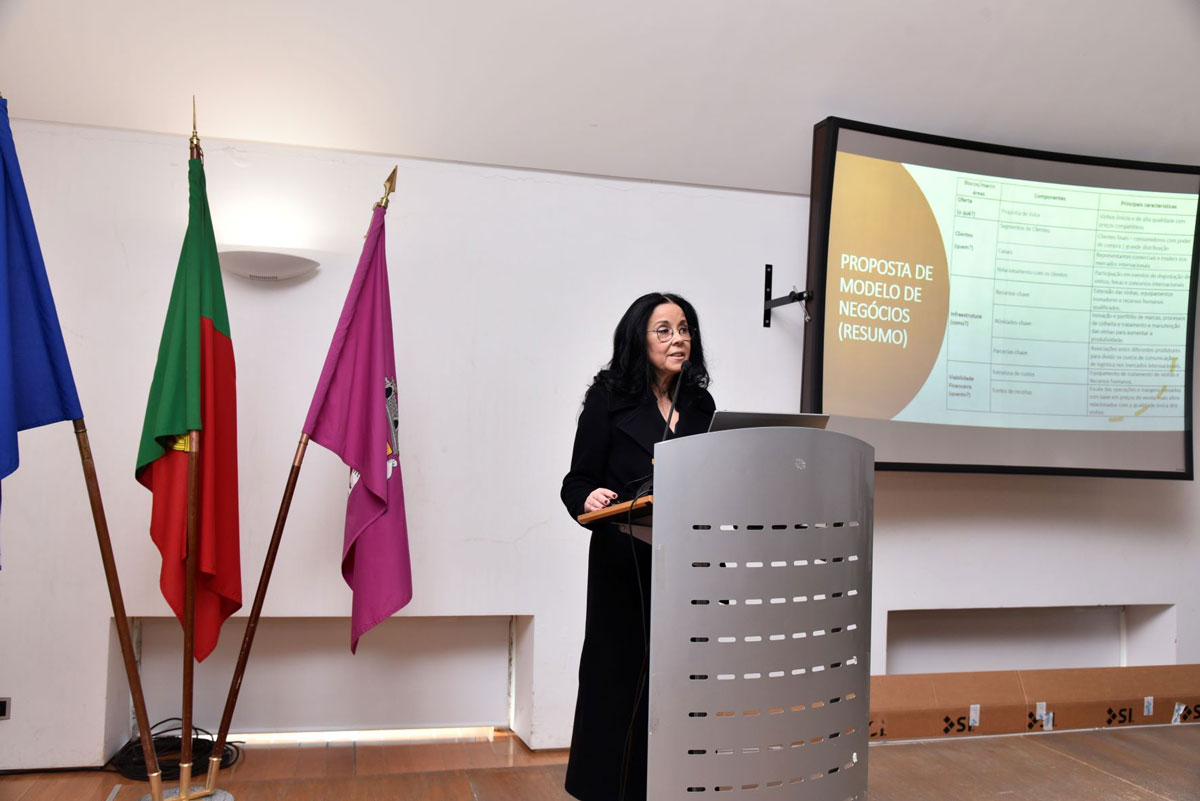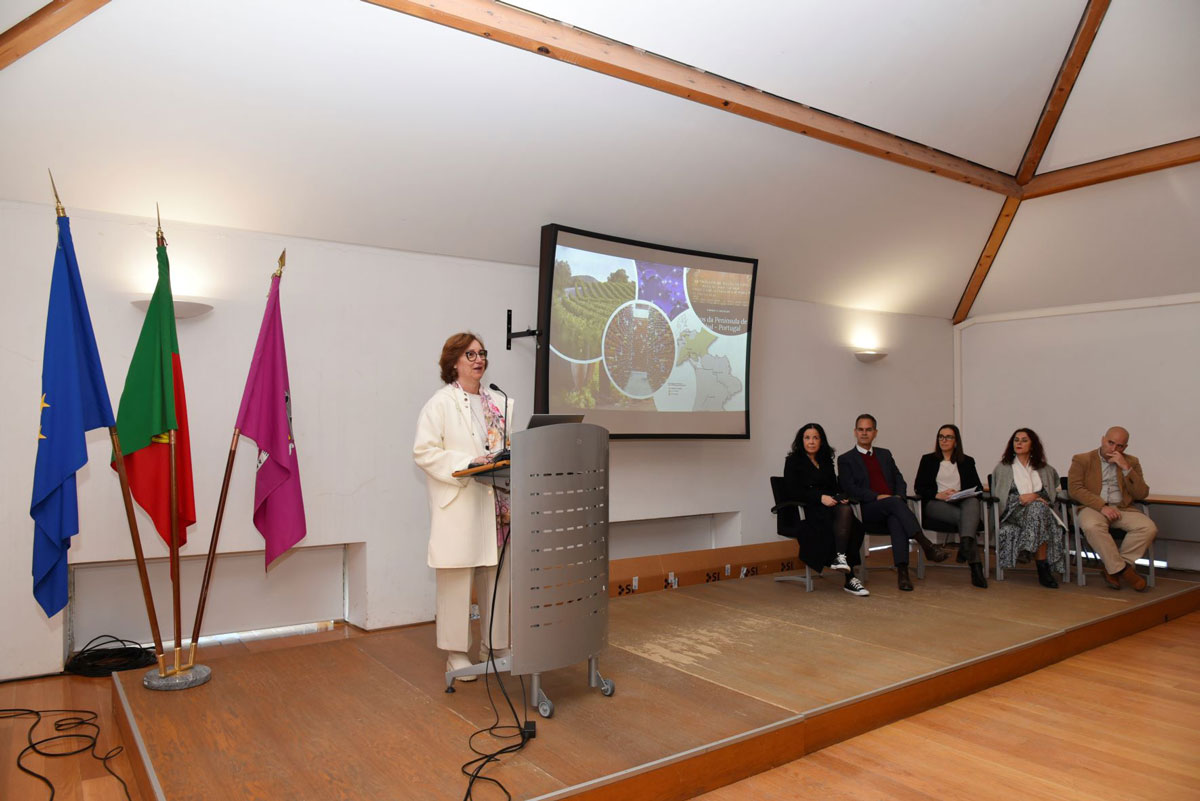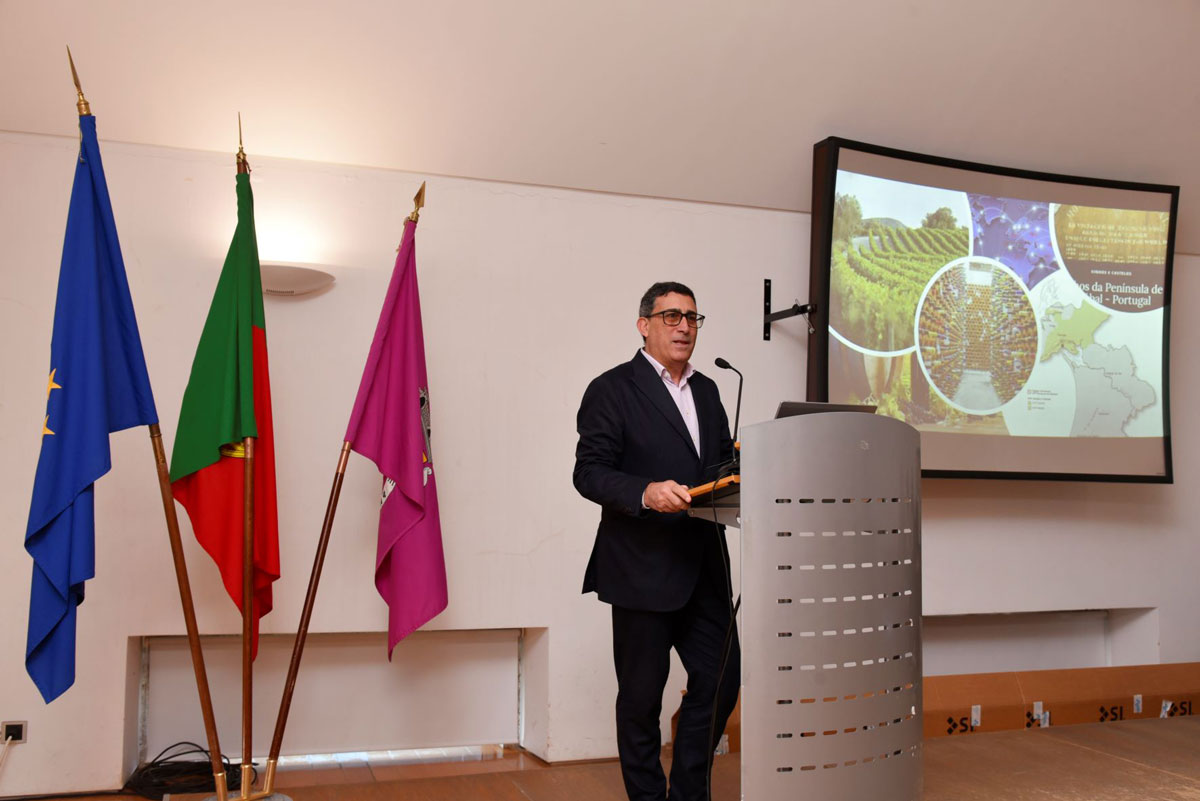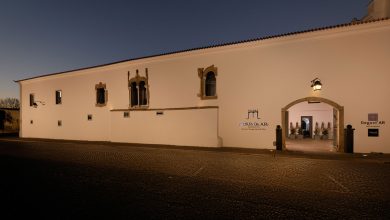Polytechnic recommends “positioning based on differentiation”
for the wine sector in Setúbal
Project RoadWine presented results within the framework of a symposium in Palmela.
To reinforce their competitiveness in international markets, wine producers from the Setúbal Peninsula must adopt a “strategic positioning based on differentiation”, taking advantage of their singularities, both in terms of grape varieties and production processes, “combining tradition and innovation ”.
This is one of the main conclusions reached by the RoadWine project, presented yesterday by the Polytechnic Institute of Setúbal (IPS) during the symposium “Future of the wine sector in the Setúbal Peninsula”, which brought together several specialists at the Municipal Library of Palmela.
The exploratory study, which started in March 2021, financed by the IPS following an internal tender, set out to make a diagnosis and respective strategic roadmap for viticulture in this territory, identifying constraints, strengths, opportunities, and key stakeholders for its post-recovery. -pandemic context.
Since it is difficult for producers in the region to compete based on the price factor, given the small size compared to the main international competitors, the strategic positioning to be adopted “should involve the development of unique skills, which contribute to the creation of an offer based on uniqueness and sophistication of products, duly supported by investments in marketing communication, which project the brands in the main markets”, said Teresa Costa, professor at the School of Business Sciences (ESCE/IPS) and project coordinator.
Still, according to the researcher, it is imperative “to diversify into new markets and penetrate segments with greater purchasing power, where uniqueness is valued and customers are not so price sensitive”, favoring channels such as sector fairs and international competitions, such as “a way of reaching direct contact with end customers and developing closer relationships tailored to market needs”.
Present at the opening session of the symposium, Luísa Carvalho, vice-president of the IPS, framed the RoadWine project within the scope of “the IPS mission to produce applied research of added value for the region and to continue to contribute to regional development”.
For his part, Álvaro Amaro, mayor of Palmela, highlighted the opportunity of this study and this discussion in a period in which the brand “Palmela – Terra Mãe de Vinhos” has just been registered and in which “the sector once again has to anticipate a reflection on the challenges and threats that arise and to which we have to be very attentive and prepared”.
The symposium also featured interventions by Sónia Vieira, from the ViniPortugal organization, which manages the Wines of Portugal brand, Mário Cravidão, Brandir marketing consultant, Natália Henriques, from ADREPES – Associação de Desenvolvimento Regional da Península de Setúbal, and Ângelo Machado, from the Setúbal Peninsula Wine Route.
The RoadWine project, which could be replicated in different regions of the country, involved two IPS research centers in the fields of Business Sciences (CICE-IPS) and Energy and Environment (CINEA-IPS), the Escola Superior de Hotelaria and Turismo do Estoril (ESHTE), the Setúbal Peninsula Regional Wine Commission, Brandir – Strategic and Operational Marketing and CITUR – Center for Research, Development, and Innovation in Tourism.
Follow us on Facebook, Twitter, Instagram, Youtube, and TikTok and see the exclusive content for social networks.









